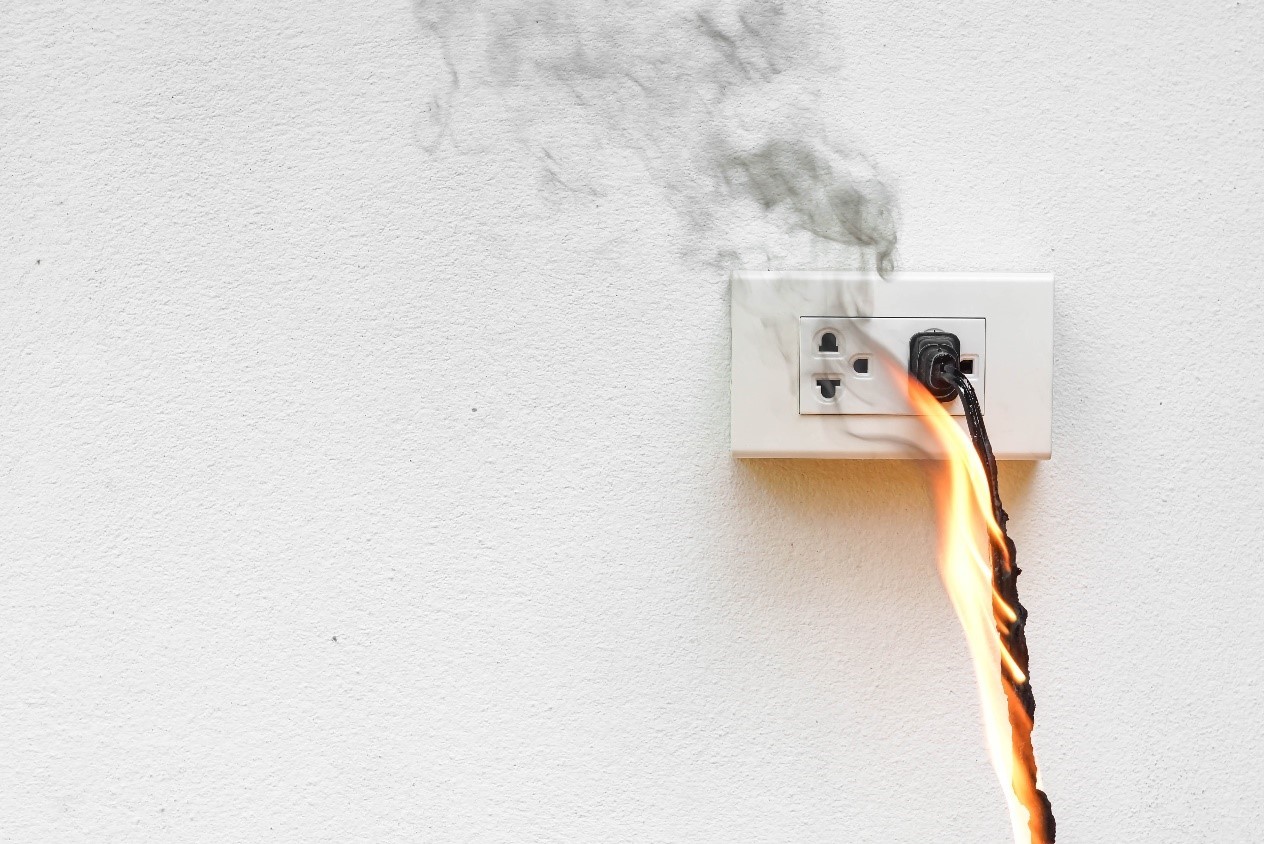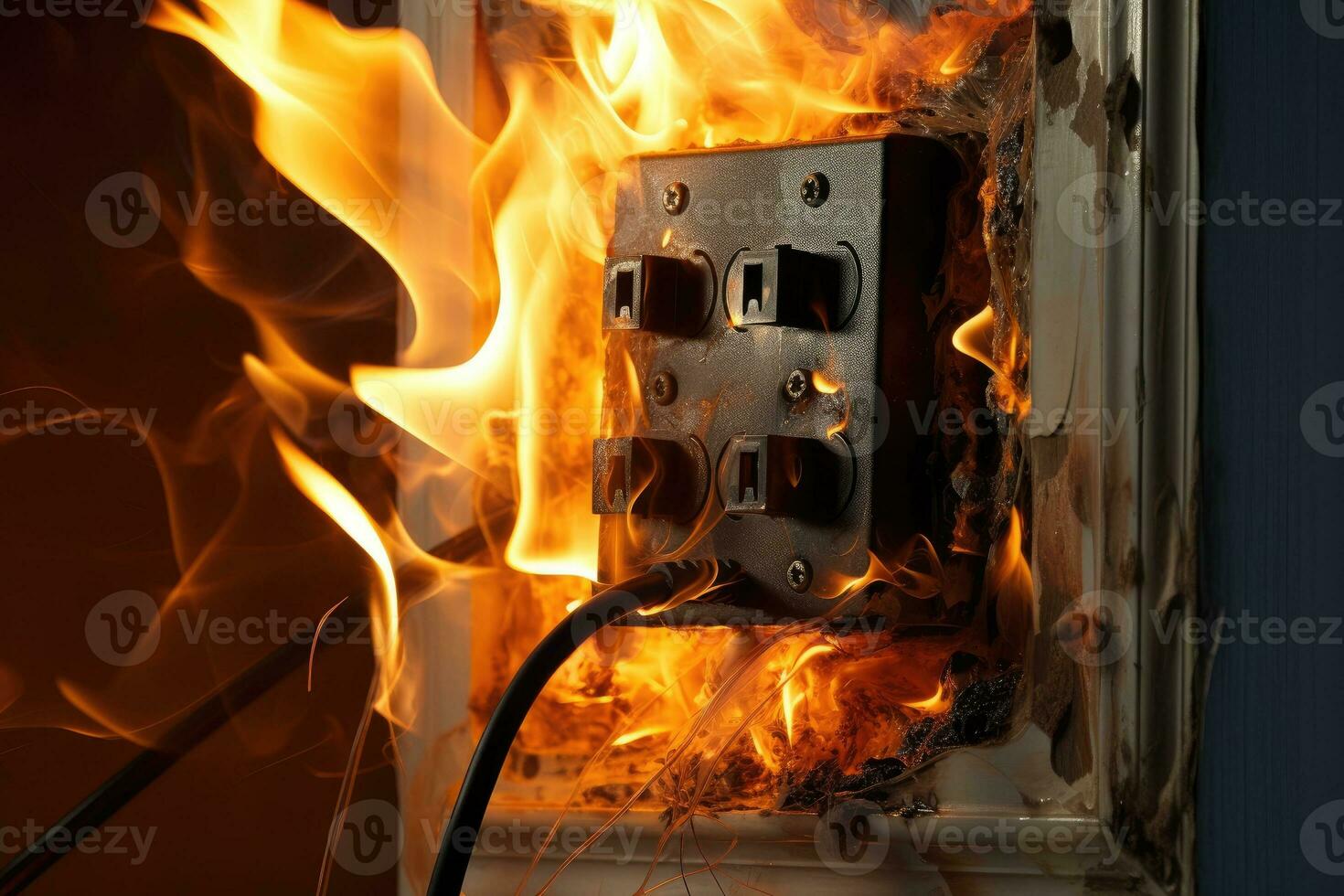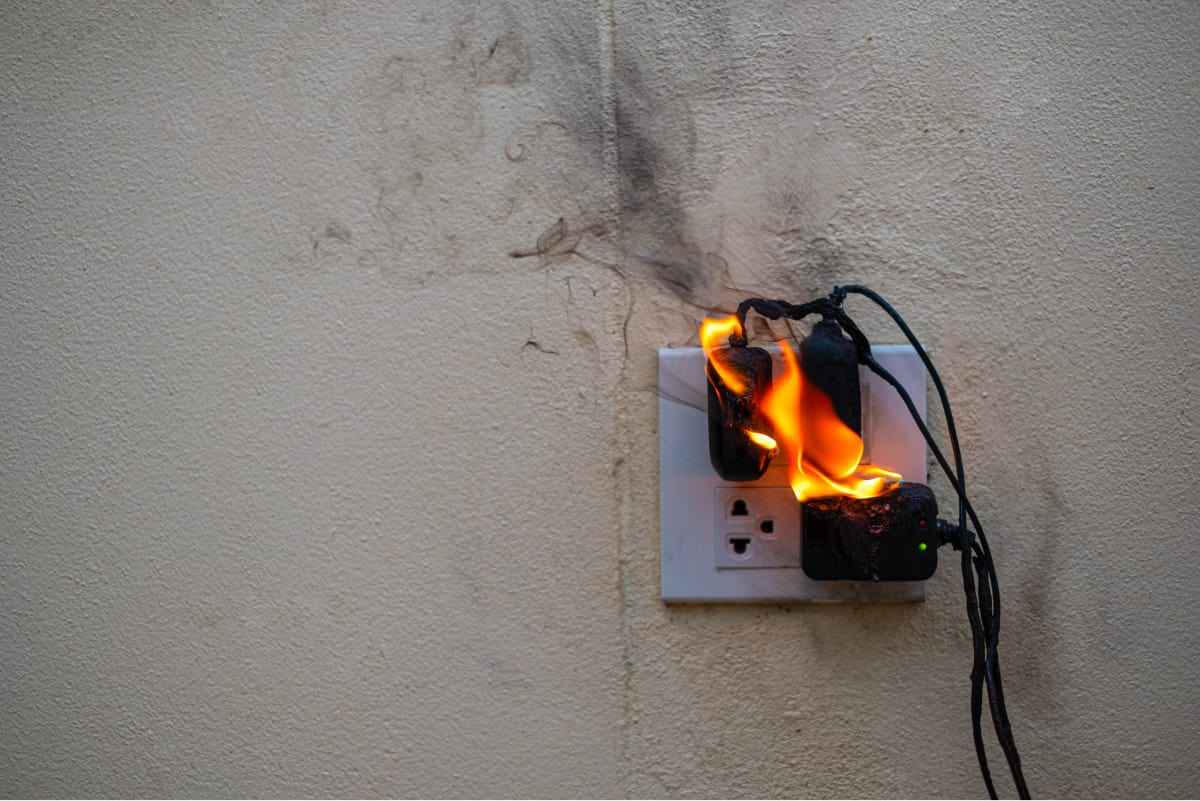The Secret Of Info About How To Stop A Short Circuit Fire

Uh Oh! A Short Circuit Fire? Don't Panic (Yet!)
1. First Things First
Alright, let's be honest, discovering a fire sparked by a short circuit isn't exactly on anyone's "Top 10 Fun Things To Find" list. It's scary, I get it. But before you envision your house going up in flames like a Hollywood disaster movie, take a deep breath. Calm is your superpower here. The most important thing is ensuring everyone's safety. Get yourself, your family, and any pets out of the immediate area immediately.
Once you're in a safe location, call emergency services (that's 911 in the US, but use your local emergency number). Give them clear and concise information about the fire's location and what you suspect caused it. Don't try to be a hero and fight the fire yourself if it's spreading rapidly or if you're unsure about what to do. Professional firefighters have the equipment and training to handle electrical fires safely. Theyre the real MVPs here, not you trying to put it out with a garden hose! (Seriously, don't do that.)
Remember that your well-being is top priority. So, let the pros do their job safely while you and your loved ones are in a secure environment. It's much easier to deal with the aftermath of a small electrical fire than to deal with personal injuries. Think of it as a strategic retreat to fight another day (or rather, deal with the insurance company).
And one more thing: if you have time and its safe to do so without putting yourself at risk, try to alert your neighbors. A fire can easily spread, and giving them a heads-up could save lives and property. It's the neighborly thing to do, and karma points are always a good thing, right?

11,685 Cause Of Fire Images, Stock Photos & Vectors Shutterstock
Cutting the Power
2. Knowing Your Breaker Box Is Your Friend
If the fire is small and contained, and you feel absolutely confident in your ability to act safely, your next move is to cut off the power supply. This is where knowing your breaker box comes in handy. Hopefully, it's not lurking in some dark, cobweb-filled corner of your basement, but somewhere easily accessible. Quickly locate the circuit breaker that controls the affected area. If you're unsure which one it is, its better to switch off the main breaker.
Now, heres the really important part: Do NOT approach the breaker box if there's water nearby. Water and electricity are not friends — they're like oil and water, cats and dogs, or pineapple on pizza (controversial, I know). If there's any chance of standing in water while touching the breaker box, stay away! Call the fire department and let them handle it. Seriously, this is not a situation to take lightly. Electrocution is a very real risk.
Before flipping any breakers, make sure you're not standing in a puddle. Dry hands are a must, too. Use the back of your hand to flip the breaker off, just in case theres any electrical current flowing through it. This can help minimize the risk of shock. Once the breaker is off, the power supply to the short circuit is hopefully cut off. The fire should start to die down. But remember, this is just the first step. You'll still need to investigate the cause of the short circuit later on.
After the breaker is switched off, don't just assume the danger is over. Keep a close eye on the area for any signs of reignition. Sometimes, embers can smolder for a while before flaring up again. If you're unsure about anything, it's always best to err on the side of caution and call the fire department.

Electrical Short Circuit. Failure Caused By Burning Wire And Socket
Extinguishing the Flames
3. Choosing the Right Tool for the Job
Okay, so you've cut the power, and the fire is small and contained. If you have a fire extinguisher specifically designed for electrical fires (Class C), you can attempt to put it out. Make sure the extinguisher is in good working order and that you know how to use it. Read the instructions carefully beforehand. You don't want to be fumbling around trying to figure it out when you're facing a fire.
Aim the extinguisher at the base of the flames, not at the smoke. Use a sweeping motion to cover the area. Even after the flames are extinguished, continue to monitor the area for any signs of reignition. Hotspots can linger, so be vigilant. And for goodness sake, do NOT use water on an electrical fire! I cannot stress this enough. Water conducts electricity, and you'll just make the situation far more dangerous. Instead of extinguishing the fire, youll likely electrocute yourself and anyone nearby.
If you don't have a Class C fire extinguisher, or if the fire is larger than you can safely handle, do NOT try to be a hero. Evacuate the area immediately and call the fire department. Remember, your safety is the top priority. Theres no shame in admitting that a fire is beyond your control. Its better to let the professionals handle it than to risk your life or the lives of others.
After the fire is out, don't touch anything until the fire department gives you the all-clear. They'll want to inspect the area to determine the cause of the fire and make sure it's safe to re-enter. They'll also be able to advise you on any necessary repairs or safety precautions. Its a small price to pay for peace of mind and knowing that youve taken all the necessary steps to prevent future fires.

What Is An Electrical Short Circuit? Causes And Prevention
Investigating the Cause
4. Uncovering the Root of the Problem
Once the fire is out and the fire department has given the green light, it's time to investigate the cause of the short circuit. This is crucial to prevent future fires. A short circuit happens when electricity takes an unintended path, often due to damaged insulation, loose connections, or overloaded circuits. This causes excessive heat, which can then ignite nearby materials.
Start by inspecting the area where the fire originated. Look for frayed wires, melted plastic, or any other signs of damage. Check the condition of electrical outlets, switches, and appliances. Pay close attention to anything that looks suspicious. Maybe a rodent chewed through a wire, or an old appliance finally gave up the ghost. The possibilities are endless (and often surprisingly mundane).
If you're not comfortable working with electricity, it's best to call a qualified electrician to investigate. They have the expertise and equipment to safely identify and repair the problem. Messing with electrical wiring without proper knowledge can be dangerous and could even create new fire hazards. Remember, prevention is better (and cheaper) than dealing with another fire. Think of an electrician as an investment in your safety.
After identifying and repairing the short circuit, consider taking steps to prevent future occurrences. This might involve replacing old or damaged wiring, upgrading your electrical panel, or simply being more mindful of how you use electricity. Don't overload circuits by plugging too many appliances into one outlet. Use surge protectors to protect your electronics from power spikes. And regularly inspect your electrical cords for signs of wear and tear. Its all about being proactive and staying one step ahead of potential problems. Youre now a fire-prevention master!

Preventing Future Fires
5. Regular Maintenance and Smart Habits
The best way to deal with a short circuit fire is to prevent it from happening in the first place. This involves regular maintenance of your electrical system and adopting some smart electrical safety habits. Think of it as giving your home's electrical system a little TLC. It'll pay off in the long run, not just in terms of fire safety, but also in terms of energy efficiency and overall home value.
Schedule regular inspections of your electrical system by a qualified electrician. They can identify potential problems before they turn into fire hazards. Its like going to the doctor for a checkup — its always better to catch things early. Replace any old or damaged wiring, outlets, or switches. Make sure your electrical panel is properly sized for your home's electrical needs. An overloaded panel can be a major fire hazard.
Be mindful of how you use electricity. Don't overload circuits by plugging too many appliances into one outlet. Use surge protectors to protect your electronics from power spikes. Avoid running extension cords under rugs or furniture, as this can trap heat and create a fire hazard. And never, ever tamper with your electrical meter. That's a job for the professionals.
Finally, make sure you have working smoke detectors in every room of your home. Test them regularly to ensure they're functioning properly. Replace the batteries at least once a year. Smoke detectors are your first line of defense against fire. They can alert you to a fire in its early stages, giving you precious time to escape. A working smoke detector can literally save your life. Its the simplest, most cost-effective way to protect yourself and your loved ones from fire. So, if you dont have them, get them. If you do have them, test them! Its a small investment with a huge payoff.

Short Circuit Fire Faulty Socket Vector Isolated Illustration Premium
FAQ
6. Your most pressing questions answered!
We've covered a lot, so here are a few common questions about short circuit fires:
Q: What does a short circuit smell like?A: It's often described as a burning plastic or electrical smell. It's a distinct odor that shouldn't be ignored!
Q: Can a short circuit cause a small fire?A: Absolutely. Even a small short circuit can generate enough heat to ignite nearby materials like paper, fabric, or dust.
Q: How do I know if my house wiring is bad?A: Look for signs like flickering lights, frequently tripping breakers, or outlets that are warm to the touch. These could indicate underlying problems that need professional attention.
Q: Is it safe to live in a house that had an electrical fire?A: Only after a qualified electrician has thoroughly inspected and repaired the electrical system and the fire department has given the all-clear.